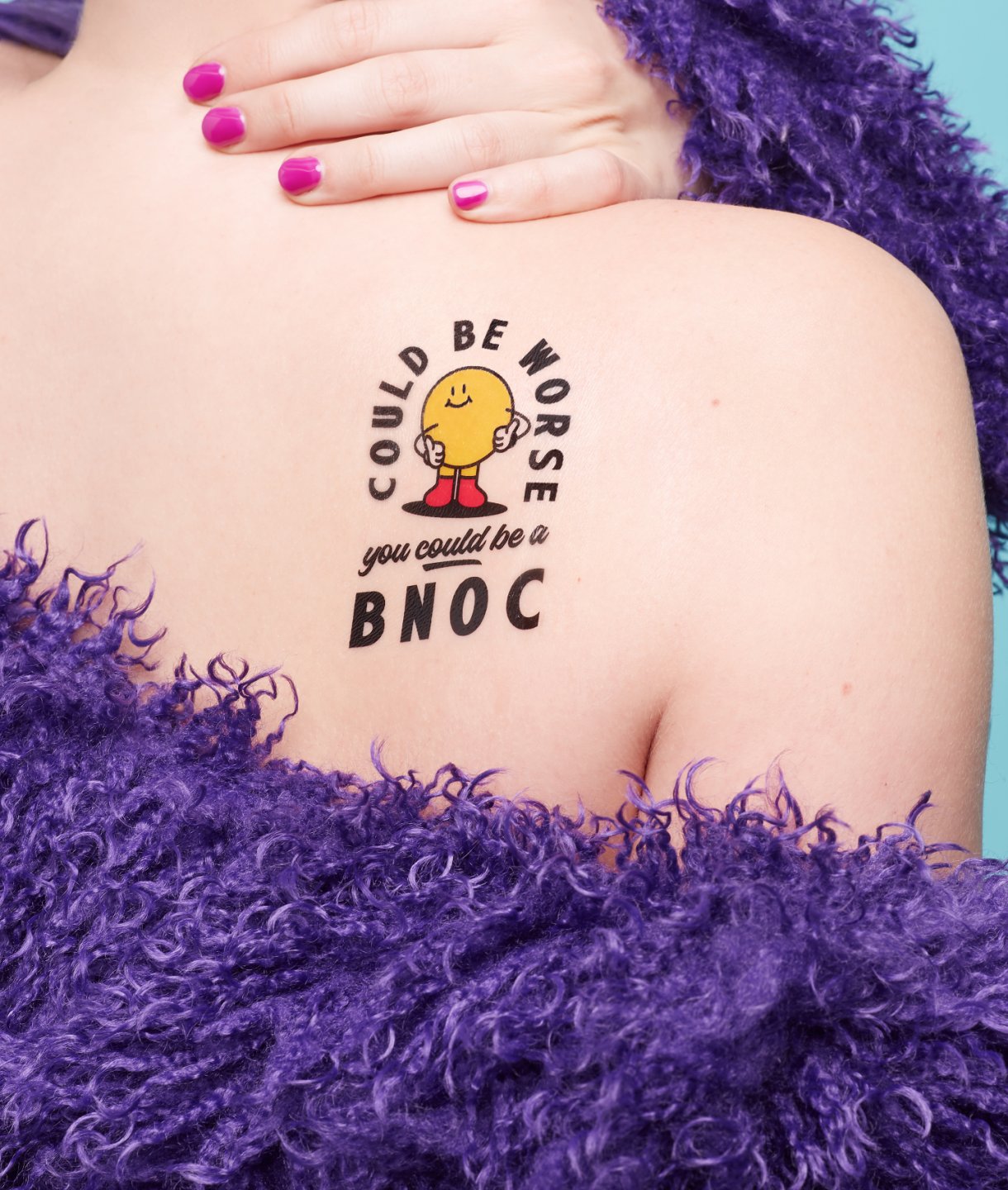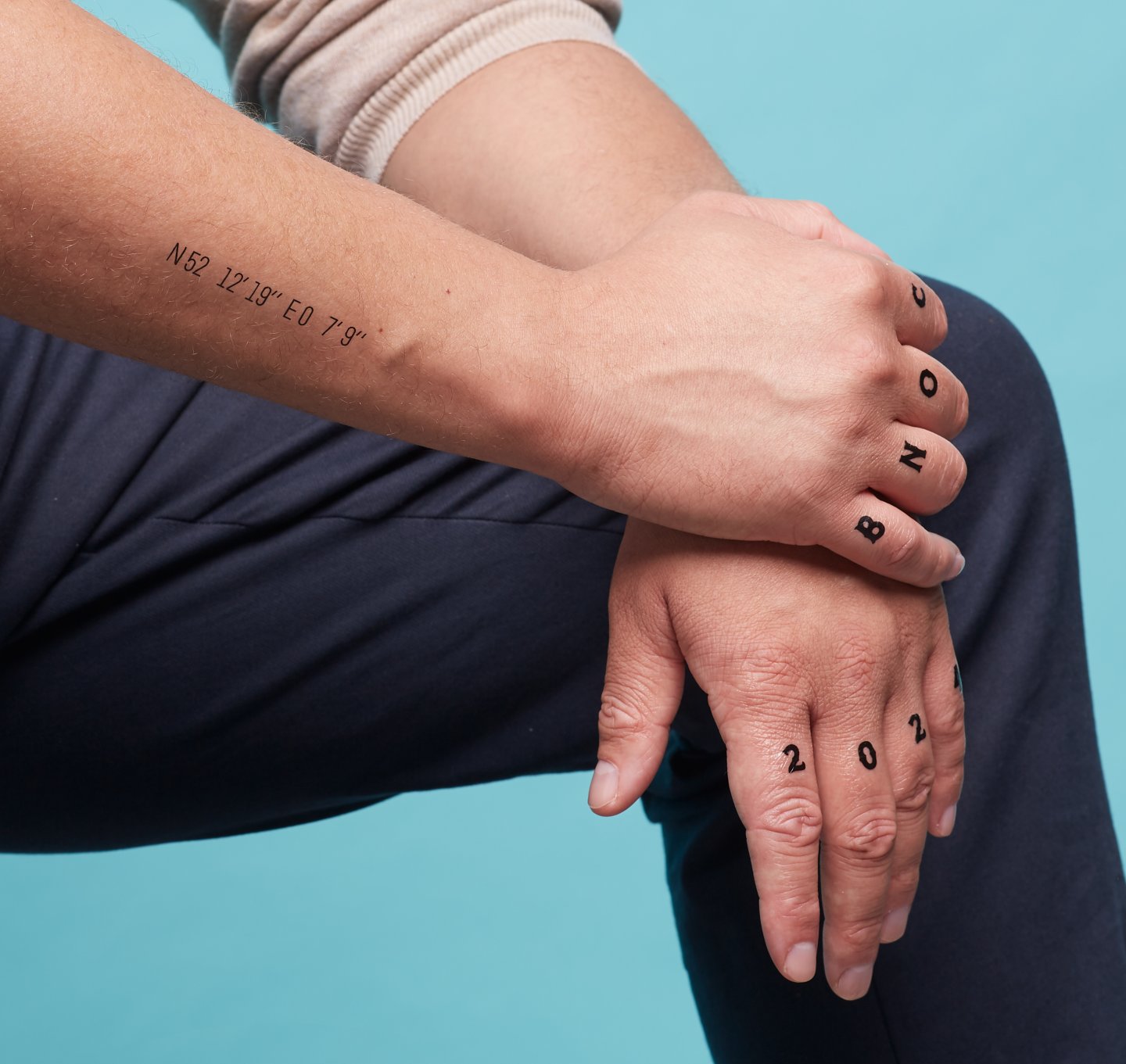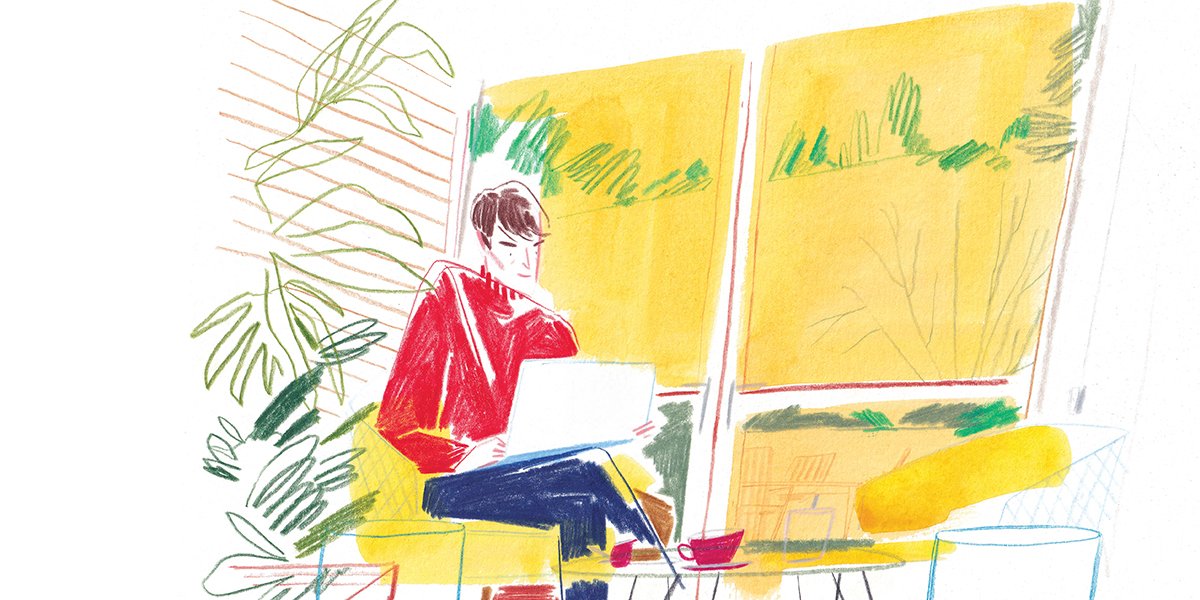BNOC
Behind the shifty nominations, bizarre stunts, attempts to rig the results and a lot – a lot! – of peacocking, the process of becoming a Big Name On Campus is a serious business. But where did this annual celebration of everything Cambridge come from, and how has it evolved to assume its now legendary status?
If it’s inspiration you’re after, where better to start than a Cambridge pub. DNA has its links to The Eagle, Tolkien’s Green Dragon in The Lord of the Rings is supposedly named after the Chesterton local, and now there’s BNOC – Big Name On Campus – the annual list of Cambridge’s movers and shakers, the result of a 2012 brainstorming session at… The Maypole.
BNOC – pronounced Bee-Nock – is the possibly genius, definitely cheeky creation of The Tab, the online student newspaper launched in 2009 to compete with the august Varsity. Tab Editor at the time, Jonny Singer (Sidney Sussex 2010), recalls gathering his troops in the pub with a view to finally answering a question that had occupied students for years – who really was the biggest name on campus?

The BNOC list is one of those things that everybody will want to read but nobody takes too seriously. Some people do try their hardest to get on it and chase clout, but it generally rewards people who are well known for more organic reasons – and that’s what makes it interesting.
“After the call for nominations, we came up with a list of 100 people that eventually went online,” recalls Singer, who is now an adviser on the Laws of Cricket at Lord’s. “We spoke to a cross-section of students to make sure we covered all bases – a good spread of Colleges and extra-curricular. If anybody got more than two nominations, they were on the list. We then created an online quiz, listing the reason the person was nominated and their College, but not their name, and asked people to enter that name if they knew who it was. You might be able to name about 30 of the people on the list, but everybody would have a different 30.”
Thus was born the 2012 BNOC Top Ten – a definitive Who’s Who of Cambridge life, and the first time anyone had thought of applying ‘scientific analysis’ (ahem) to the much-debated issue of University-wide celebrity (or perhaps, notoriety). Singer had a feeling he might be on to something and, sure enough, BNOC has become an essential part of Lent Term gossip. Students pore over the list looking for friends or rivals, there are regular rumours of scandals and rigged votes, while some wonder if those on the longlist have been trying too hard or even, god forbid, secretly canvassing for votes.
And for those on the list? That depends on the student. Some embrace the honour and even stick it on their LinkedIn profile; others delete their social media accounts and hope it blows over. It’s a fine line, says Sunday Times columnist Charlotte Ivers (Pembroke 2013), No 1 BNOC in 2016 with 1,662 votes and 92% recognition (and described at the time as “Woman about town, social justice warrior… leggy blonde”).
“It was all extremely fun and extremely silly,” she says, attributing her victory to having been editor of The Tab the previous year, resulting in her name and face appearing in every Cambridge inbox. “At the time I joked that whoever won it would probably be a terrible person, and then, when I was named, realised I was right. But the main impact it has on my life now is that every now and then somebody will find it after a Google search and be extremely amused – while I am mortified.”
While the names on the BNOC list change each year, some things remain constant. Cambridge Union members and student journalists are usually well represented – although current Tab staff are excluded – and there is usually a smattering of sports people, thespians, comics and party animals. And the winner will generally cut across these cliques.
Sometimes a winner might not really want the accolade – 2020’s No 1 BNOC became campus-famous after he was inadvertently embroiled in a controversy that drew national media attention and tweets from John Cleese (Downing 1960). Other students actively court notoriety by making controversial speeches. And sometimes noses are knocked out of joint by an unexpected or unfashionable winner.
That was the case for the very first BNOC, 2012’s No 1 Johnathan Zemlik (Corpus 2011), who threw himself into university life with zeal, joining sports and political societies, clubbing and attending formals. “When I got to Cambridge, I realised I wasn’t the smartest person in the room any more. That meant I had to be something else instead,” he says. “I was probably trying a bit too hard. I dressed up a bit, like a showman. I looked like Alan Partridge, blue blazer with brass buttons paired with chinos. I was one of those people who got to Cambridge and realised that now was the moment to experiment.”
As someone known to a number of social constituencies, albeit as self-described “comic relief”, Zemlik had precisely the broad name recognition required of a BNOC. Nonetheless, incredibly, outsider Zemlik defeated more recognisable Big Names, including future singer Tom Rasmussen (Queens’ 2010), future Conservative MP Katie Lam (Trinity 2009), and Charlie Gilmour (Girton 2009), son of Pink Floyd’s David Gilmour. Future England cricketer Zafar Ansari (Trinity Hall 2010) was nowhere to be seen. Singer says that he still wonders about the result.

Indeed, Charlotte Ivers remembers a whiff of scandal when she was named No 1 four years later. A student from Trinity wrote a programme to bombard the quiz with thousands of votes for a friend – much to the displeasure of the recipient, who had no desire whatsoever to be a BNOC. Fortunately for them, they were eliminated when the bots clocked up something in the range of 100,000 votes – 10 times the usual number. Ivers was free to take her crown.
In recent years, the list has skewed towards those who are active on social media. 2024’s BNOC is Sal Widdicombe (Homerton 2021), who developed a following after creating skits on a now deleted Instagram account. He also attended numerous societies and debates, but having a viral video can be a deal clincher when it comes to name recognition.
Like most people outside Cambridge, he had no idea BNOC existed until he started university. “I only heard about BNOC in the first term, and it starts to hype up a bit as you get towards spring,” he says. “The BNOC list is one of those things that everybody will want to read but nobody takes too seriously. Some people do try their hardest to get on it and chase clout, but it rewards people who are well known for more organic reasons. That’s what makes it interesting.”
Although the BNOC list was expressly intended not to be a popularity contest – it’s about recognition and nothing more – unsurprisingly this isn’t always how it pans out. When Tab co-editors Zac Copeland-Greene (Girton 2020) and Hannah Huang (Christ’s 2020) issued 2021’s BNOC first round longlist, Copeland-Greene discovered students were only voting for people they liked – or sometimes, those they disliked – rather than, as the rules set out, everybody whose name they recognised. Similarly, people would nominate friends or enemies out of a sense of mischief, a desire to embarrass or, very occasionally, through genuine loyalty.

This being a (mostly) consequence-free, student online poll, Huang and Copeland-Greene were also unable to remain unrocked by scandal: a member of The Tab claimed the pair were rigging the vote – in truth, the only change they made was to remove their own names from the longlist, as per the rules set down by Jonny Singer a decade before.
“We took some offence to that because we’d ended up with all these Union hacks and were actually hoping for something a bit more exciting,” says Copeland-Greene. “A lot of people had nominated a guy who was famous for punching a wall. We hoped he’d win, but we ended up with Union presidents who spend so much time messaging to ask for votes that we have all seen their names.”
“Running The Tab was a lot of work,” says Huang. “Much more than people might realise. We had a team of 70 and there’s loads of admin, so BNOC made a nice change. We saw all the reasons why people were nominated and knew the result a few days before it was published, so we felt we had a really cool secret.”

However the last word must go to BNOC’s first and most recent winners, who reflect on the meaning of BNOC in 2012 and 2024. “It was a bit of fun, but after I won, I think it became much more competitive,” says Zemlik. “Cambridge is a competitive environment, and students can take the whole thing far too seriously. I have friends from Cambridge who are starting to have kids and quietly getting on with their lives. They seem to be happier people than those seeking accolades – and I say that as somebody who still seeks accolades even now.”
Sal Widdicombe is adamant he is having fun, as he heads into his third year at Cambridge with the BNOC crown firmly upon his head. “It’s definitely the best time of my life,” he says. “I love meeting lots of different types of people and expanding my world view. For me, the BNOC list represents a microcosm of the Cambridge spirit. It’s very diverse and it’s very inclusive, with people from all the different groups and cliques. It’s a real mix, a medley of the social life of Cambridge University.”
 CAM
CAM

